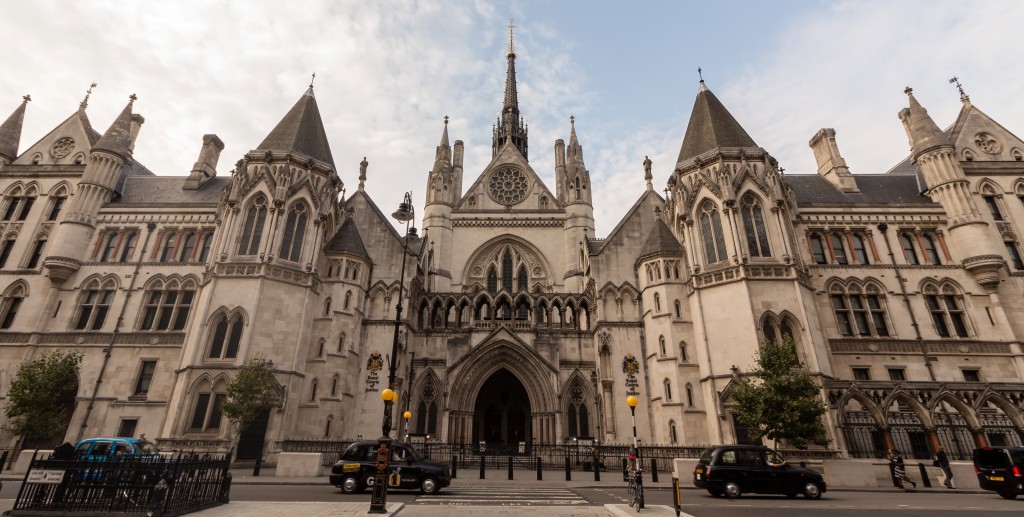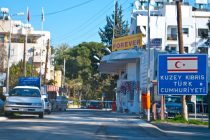You’ve probably already heard the news that fugitives fleeing British justice can no longer use the Turkish Republic of Northern Cyprus (TRNC) as a safe haven. Thanks to a landmark decision in the High Court, even without an extradition treaty between Britain and the TRNC, law enforcement officers from the two countries can still co-operate.
For years, fraudsters, drug smugglers, rapists and murderers seeking to dodge punishment moved to North Cyprus believing that the non-recognition of the breakaway Turkish Cypriot state would keep them beyond the long arm of the law. Not any more.
A High Court ruling on 3rd Feb. means that suspects refusing to return to Britain can now be prosecuted in North Cyprus instead. The court also ruled that there is nothing to stop British police officers contacting their peers in the TRNC to help with their criminal investigations.
The judges rejected arguments that such cooperation amounted to an “act of recognition” by the UK of the TRNC. Lord Justice Burnett said there was ‘no duty in UK law that stopped the Government from recognising Northern Cyprus’. He added that “foreign policy decisions and obligations emanating from international law are distinct to domestic legislation, which is the only one of concern to the court in this case”.
Landmark ruling involves suspected drug dealer Hasan Akarcay, who fled to North Cyprus in 2006
The landmark ruling came about in a case brought by 60-year-old businessman Hasan Akarcay. He escaped to the TRNC in 2006 after being accused of involvement in a drug smuggling ring following the discovery of 12.5kg of heroin in Bradford. Evidence against him was handed over to the Turkish Cypriot authorities, who had been asked to try him in North Cyprus if he could not be sent back to Britain.
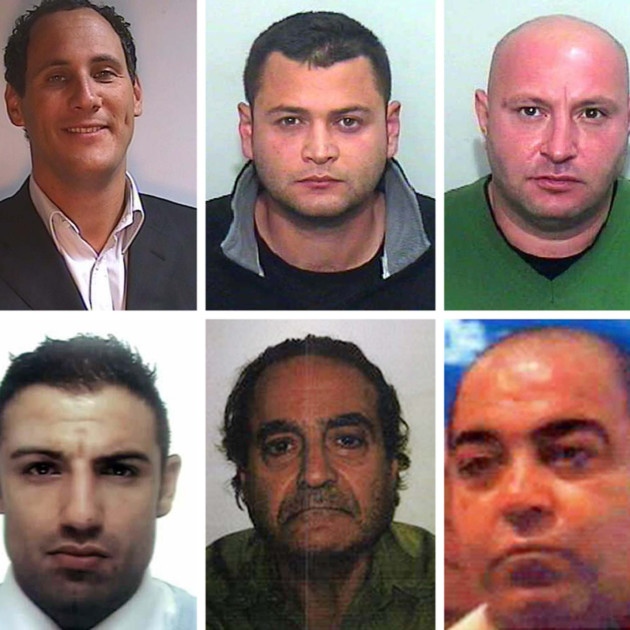
Akarcay’s lawyers claimed such action was unlawful as it breached United Nations resolutions. Their arguments were overruled by the judges, who deemed the public interest in serious crimes to be of greater importance. The judges also cited the fact that the UN has direct links with Turkish Cypriot officials without this changing the status of the TRNC.
“In the circumstances of this case, the public interest in co-operation is clear,” said Lord Justice Burnett, who considered the case with Mrs Justice Thirlwall.
“The claimant is suspected of being part of a significant drug conspiracy. Had he remained in England, he would have been prosecuted.”
“He has put himself beyond the reach of the criminal justice system in England and Wales.”
“There is a clear public interest in him being prosecuted elsewhere if that is possible. It is possible in Northern Cyprus.”
The judges therefore dismissed Akarcay’s challenge, paving the way for him to be prosecuted in North Cyprus.
Turkish Cypriots have already helped bring British criminals to justice
Prior to last week’s High Court ruling, the Turkish Cypriot authorities were already helping foreign law enforcement agencies to prevent crime. In 2010, a TRNC government spokesperson told the BBC that even without an extradition treaty, where evidence and a valid extradition warrant exist, its officials would assist.
Co-operation was central in bringing Miran Thakrar to justice. The drug dealer had fled to North Cyprus in 2007 after he and his brother committed a triple killing in Bishop’s Stortford, Hertfordshire. He was detained and escorted back to Britain, with Turkish Cypriot officers sent to testify at his trial. Thakrar was later jailed for life.
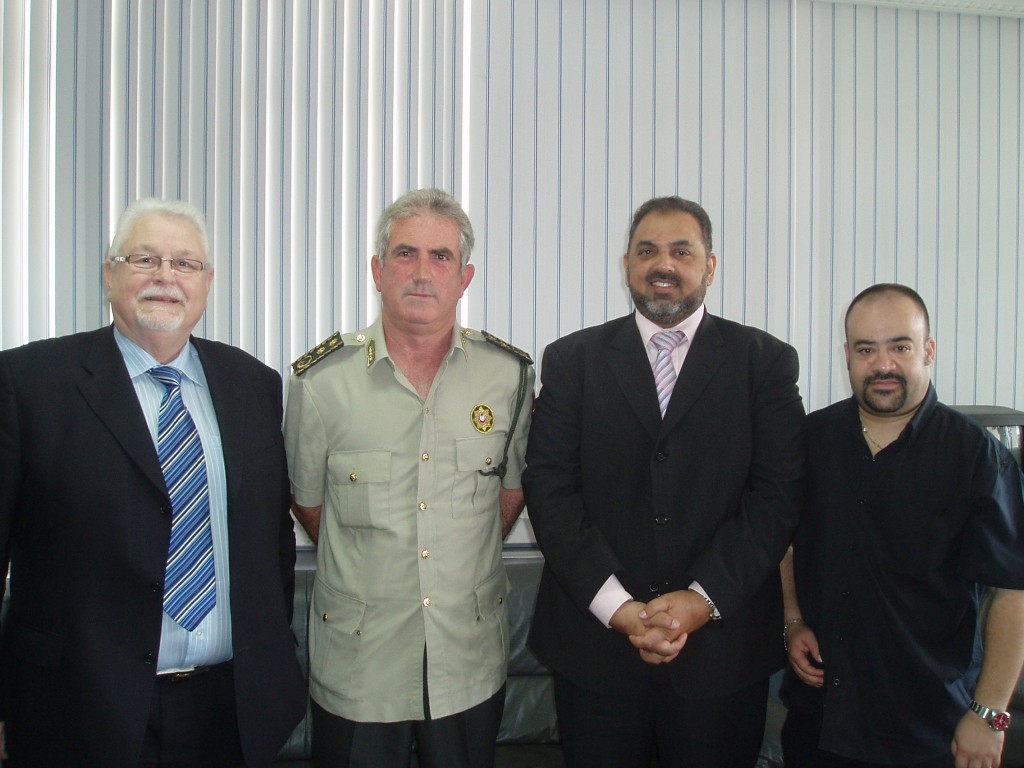
In 2008, Turkish Cypriot police also assisted in the search for Sean Lupton, suspected of laundering money from the Securitas robbery – the UK’s biggest ever theft. Through private diplomacy, facilitated by Lord Ahmed, Lord Maginnis and human rights group Embargoed!, Kent police contacted local officers, who helped them to track down Lupton. However, a news report in a British daily national alerted the suspect that the manhunt was heading to North Cyprus and he escaped before he could be apprehended.
The precedent for co-operation between the two countries had been set nearly a decade earlier, when a suspect in a British murder case was tried in North Cyprus in 1999.
Legal precedent set in 1999 when TRNC court tried Özgay Cevat in Michael Menson murder case
In January 1997, a young British black man, Michael Menson, was torched to death in a London street in a racist attack. One of the prime suspects, Özgay Cevat, fled to the TRNC believing he would elude British justice there.

Cevat was arrested for another offence he had committed in North Cyprus and while awaiting trial, the Turkish Cypriot authorities became aware that he was wanted in Britain in connection with the death of Michael Menson.
Although no extradition treaty existed between the two countries, a senior Turkish Cypriot officer visited his counterparts in Britain to explain that TRNC Law allowed someone who commits a serious offence abroad that could result in a jail term of two or more years to be tried in the TRNC. Given what the TRNC authorities knew of Menson’s murder, they believed Cevat had a case to answer and were prepared to prosecute.
British police officers delivered copies of all their paperwork to the TRNC in May 1999 and also enabled Turkish Cypriot officers to interview witnesses in London. British officials then travelled to North Cyprus to help prepare the trial.
In total, some thirty-two witnesses travelled to the TRNC via South Cyprus to give evidence at the 1999 trial, which was heard by three of North Cyprus’ most senior judges: Taner Erginel, Mustafa H.Özkök, and Gönül Erönen. All three judges found Cevat guilty of the manslaughter of Michael Menson and he was jailed for 14 years [read case ruling in Turkish here].
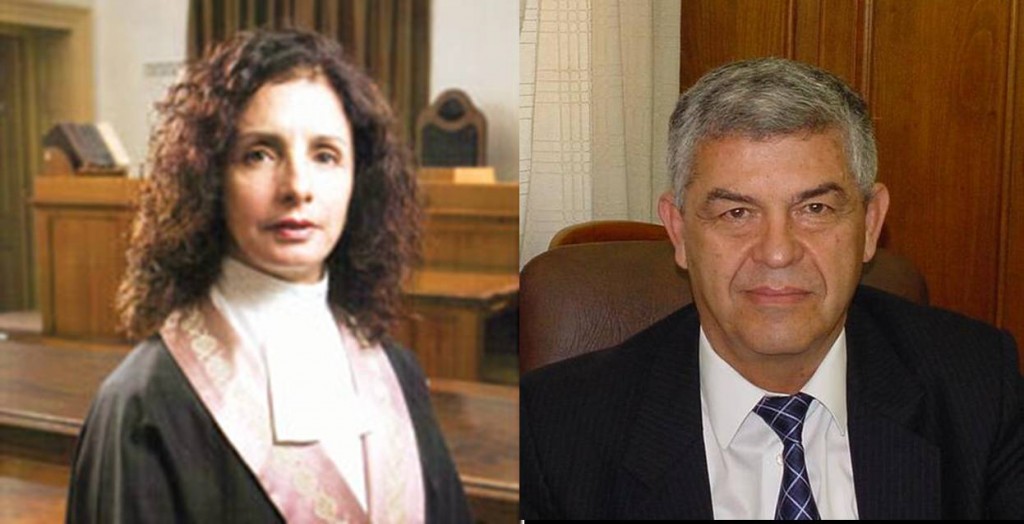
Political pressure from Greek Cypriots prevented cross-border co-operation
This unprecedented level of cross-border co-operation was severely curtailed due to political pressure brought to bear by the Greek Cypriot government, who feared the political status of the TRNC would be elevated. As a result, North Cyprus became a bolt-hole for those seeking to dodge justice as British law enforcement agencies were given strict instructions by their superiors not to pursue criminals in the unrecognised part of the island.
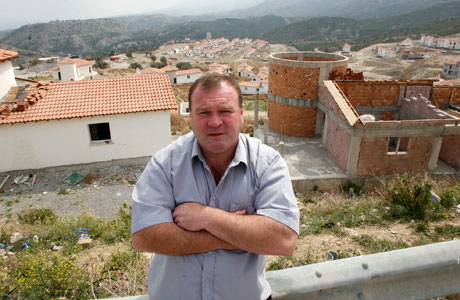
Future investigations had to be conducted discreetly and indirectly with the Turkish Cypriot authorities. Going forward, it seemed the only way Britain could bring suspected criminals to justice was to have them deported, as in the case of Miran Thakrar and later of fraudster Gary Robb, who was sent back to England in 2009.
Like Akarcay, Robb also tried to claim the indirect co-operation between the TRNC and UK law enforcement agencies was “unlawful” and that his deportation to Stansted Airport, where he was arrested on arrival, amounted to “kidnapping”.
His arguments did not wash with the courts. He subsequently pleased guilty to conspiracy to supply drugs at Teeside Crown Court and was jailed for five years.
Non-recognition of the TRNC

Up until the recent High Court ruling, lawyers for British felons based in North Cyprus have relied upon two UN resolutions that call for the non-recognition of the TRNC. This, they argue, prohibits inter-state co-operation.
The resolutions date back to 1983. Following the failure of talks to unite Cyprus, Turkish Cypriots made a unilateral declaration of independence (UDI) on 15 Nov. Immediately after this, the UN passed resolutions 541 and 550 proclaiming the UDI to be invalid and called on other countries not to recognise the breakaway state.
Since then, bar Turkey, no state has established official diplomatic ties with the TRNC. Contact with the outside world, from flights to telecommunications, post and trade occurs via Turkey. Even where mutual interest exists, such as in crime prevention, politics has prevented co-operation.
Any persons trying to contact the Turkish Cypriot authorities are thwarted by the Greek Cypriot-controlled Republic of Cyprus in the South. Its government and diplomatic missions around the world regularly issue threatening letters to those seeking to work directly with the TRNC, which they claim is “illegally occupied”, insisting all Cyprus-related matters are addressed through them even though they have no effective control over the northern third of the island.
The Greek Cypriots’ deliberate policy of internationally isolating the TRNC started to falter in 2004. At that time, Turkish Cypriots voted in favour of the UN’s Annan Plan to unite the island, while Greek Cypriots voted against. As a result, world leaders pledged to end the embargoes on Turkish North Cyprus.
TfL’s North Cyprus ad ban an “error of law and fact”
Moreover, in the absence of a comprehensive political settlement in Cyprus, foreign courts are increasingly forced to address the often absurd anomalies that have arisen due to the non-recognition of the TRNC.
In 2005, the British High Court made another landmark ruling when it quashed Transport for London (TfL)’s ban on North Cyprus adverts appearing on London buses, tube stations and other TfL property.
Justice Newman said the ban, instigated by Mayor Ken Livingstone, was an “error of law, error of fact and irrationality”.
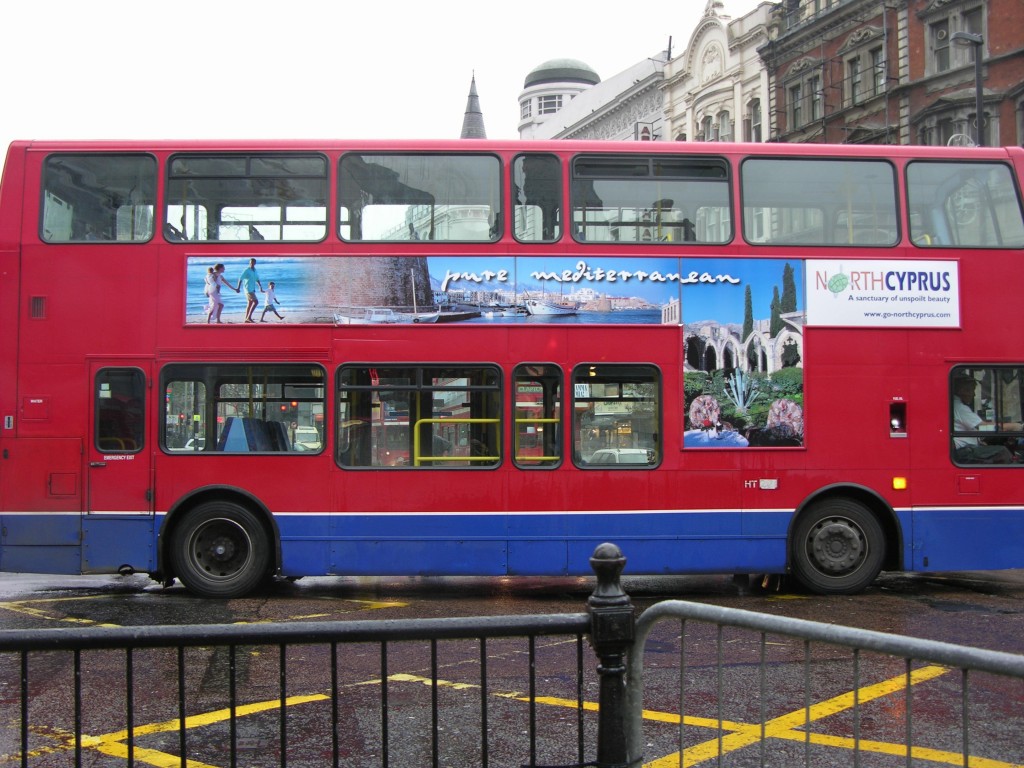
Lawyers for TfL had argued the adverts generated “serious and widespread offence”, but Mr Justice Newman disagreed. He said: “No offensive product or service was offered by this advertisement, which merely illustrated the cultural and environmental delights of northern Cyprus.”
He added that the advertisements “carried no political message” and TfL’s decision to introduce the ban was “disproportionate” as it was not justified by any “pressing social need”.
Justice Newman’s 2005 TfL ruling “a victory for common sense”
At the time, Yılmaz Kalfaoğlu, head of North Cyprus’ UK Tourism Centre, which had fought the ban, called the ruling “a victory for common sense”.
Common sense also prevailed in legal decisions concerning Greek Cypriot refugees seeking their property rights in North Cyprus. Told by their own authorities not to deal with the “illegally occupied territories”, hundreds of claimants instead applied to the European Court of Human Rights (ECHR) for relief for their property grievances.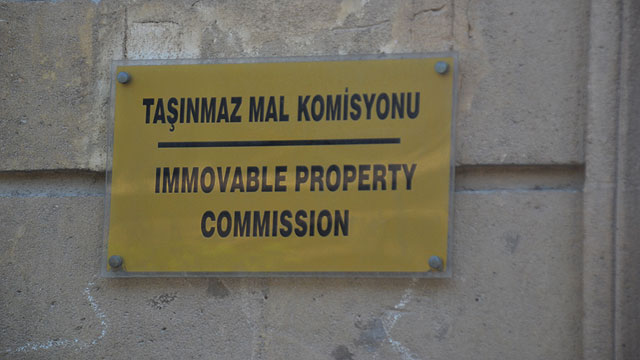
Fearing the floodgates had opened, the ECHR sought a local remedy for the refugees. After trying a few test cases, the Court’s rulings paved the way for an Immovable Property Commission (IPC) to be established in North Cyprus in 2005.
The IPC’s remit is to review cases and, operating in accordance with international law, award refugees restitution, compensation and exchange. To date, it has concluded 787 cases through friendly settlements and 25 through formal hearings.
Landmark Demopoulos verdict against the “forcible eviction and rehousing” of current occupants of refugee properties
The IPC’s decision-making was further informed by the landmark Demopoulos Ruling of 2010, which for the first time gave explicit rights to current owners of former refugee homes in North Cyprus.
In its verdict, the court said any new decisions must “ensure that the redress applied to those old injuries does not create disproportionate new wrongs” such as by the “forcible eviction and rehousing of potentially large numbers of men, women and children”.
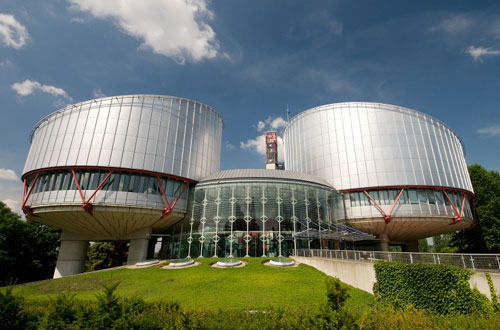
As part of their deliberation, the ECHR judges hearing the Demopoulos case also looked at resolutions used in competing property rights of other long-running conflicts.
The Court’s ruling upset the Greek Cypriot side as it undermined their long-held belief that ‘all refugees will go home’. This attitude, however, ignores the impact of the passage of time and the rights of new property users, both crucial in the ECHR’s final verdict.
In the new millennium, the courts are increasingly playing a critical role in breaking the political deadlock in Cyprus. The Talks have continued on and off for over fifty years without any real likelihood of delivering a comprehensive settlement. In its absence, and given the fact that life continues on both sides of the divided island, legal rulings are setting out fair, long-term solutions to vital social matters.
These rulings demonstrate that North Cyprus can no longer be put in the political freezer, isolated and ignored indefinitely. On the contrary, interaction with Turkish Cypriots is essential in crime prevention, preserving refugee property rights, and trade, to name but a few areas.
With each passing year, the existence of the TRNC is solidifying and its relationships with the wider world normalising. At this rate, the courts may well make the Cyprus Talks totally redundant.
Main photo of the Royal Courts of Justice, London, wide angle © Rafa Esteve, creative commons licence / Wikipedia


